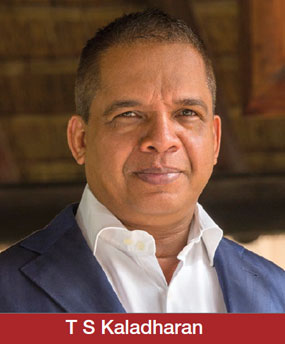 As tragic scenes from COVID ravaged India shake the very essence of our being, we have come to a grave realization that the virus has not gone away. It caught India unawares even as several other countries worldwide battled severe second waves of the pandemic.
As tragic scenes from COVID ravaged India shake the very essence of our being, we have come to a grave realization that the virus has not gone away. It caught India unawares even as several other countries worldwide battled severe second waves of the pandemic.
Several Indian states are reeling under the pressure of daily rising of positive cases along with a severe shortage of medical oxygen and a lack of hospital beds; things are spiraling out of control. The UAE was one of the first countries to offer help with six cryogenic oxygen containers, followed by financial aid. UAE also expressed its support to India by lighting up the iconic buildings in the Indian tricolor on April 25th.
It is essential to realize that the virus is not contained within countries and nations but can travel through international borders and boundaries. One country’s problem cannot be seen as an isolated one, but we need to accept that we are an increasingly global community. As global citizens, we need to embrace the suffering of our fellow human beings. I extend my heartfelt sympathies and condolences to everyone whose families in India have been affected by this virulent virus.
The real lesson from this catastrophe of epic proportions is the dire need for preparedness. The year 2020 was a watershed year for businesses across the spectrum. COVID-19 shook the logistics industry as well and it was indeed a wake-up call. Protocols were introduced to ensure the integrity and continuity of the supply chain. While 2020 proved to be a breakdown of all paradigms, 2021 is not a time to let down our guards. What we have to acknowledge today is that unpredictability is the new normal.
As we restructure and move ahead together, the CSS family must be flexible, open, and prepared; these are the keys to our success. We cannot sketch out the opportunities and challenges in the field of logistics. We need to be agile enough to operate in a flexible technology environment instead of predicting what’s ahead in terms of market conditions. If we do that, we will emerge resiliently, and more importantly, we will be better set up for success.
Let’s always keep in mind that the difference between successful people and unsuccessful people is that successful people are willing to do what unsuccessful people are not. As Aristotle said, “We are what we repeatedly do.” The compound effect is the principle of reaping great rewards from a series of small but smart choices. The compound effect works both ways, and it can also lead to ruin if the habits are bad.
It’s not the big things that add up in the end; it’s the hundreds, thousands, or millions of little things that separate the ordinary from the extraordinary